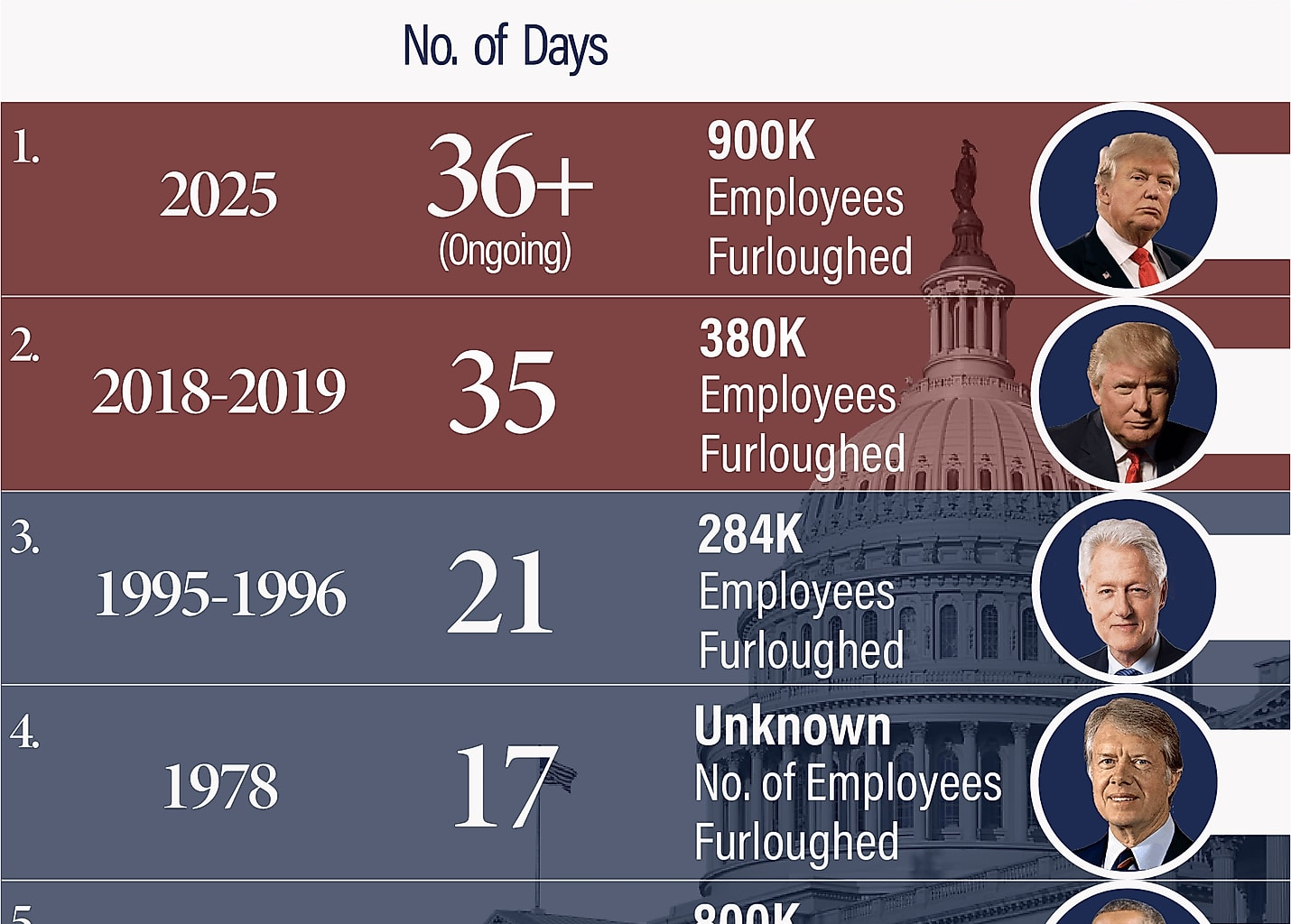The United States has entered a historic and uncertain moment. The ongoing federal government shutdown — now surpassing 40 days — has become the longest in U.S. history. What began as a standoff over budget priorities has spiraled into a nationwide crisis affecting everything from airport security to food assistance programs.
For millions of Americans, this isn’t just a political deadlock — it’s a lived reality. Paychecks have stopped, services are stalled, and public frustration continues to grow. As the Senate scrambles to reach an agreement, the stakes have never been higher for both lawmakers and the people they represent.
A Government Frozen in Time
The shutdown began when Congress failed to pass a comprehensive funding bill before the fiscal deadline. The primary point of contention lies in disagreements between the White House and lawmakers over budget allocations — particularly for defense spending, border security, and social programs.
With no resolution in sight, federal agencies have been forced to operate with skeleton crews or shut down entirely. Roughly 800,000 federal employees have been furloughed or are working without pay. National parks are understaffed, passport processing has slowed, and research projects funded by federal grants are at risk of collapse.
The effects have rippled beyond government offices. Small businesses that rely on federal contracts face financial uncertainty, and thousands of families dependent on food aid or housing assistance are confronting difficult choices.
Human Cost Behind the Headlines
Behind the political drama are personal stories of hardship and resilience. TSA agents at major airports have called in sick en masse, citing financial strain. At food banks across the country, volunteers report a rise in federal employees seeking assistance for the first time.
“I’ve worked for the federal government for 12 years,” says one furloughed worker from Maryland. “I’ve never missed a paycheck until now. It’s not just about money — it’s about dignity.”
The shutdown’s impact also extends to the nation’s most vulnerable. Programs like WIC (Women, Infants, and Children) and SNAP (Supplemental Nutrition Assistance Program) face operational challenges, leaving millions uncertain about future aid. The Department of Housing and Urban Development (HUD) has warned of potential lapses in rent subsidies for low-income families.
Political Chess in Washington
On Capitol Hill, negotiations have turned into a political chess match. Senate leaders from both parties are attempting to craft a bipartisan funding proposal, but progress remains slow.
The President has maintained a firm stance, calling for a budget that includes specific national priorities, while opposition lawmakers insist that the shutdown is “political brinkmanship at the expense of the American people.”
Analysts note that both sides face political risks. For the administration, prolonged shutdowns erode public trust in leadership. For Congress, the inability to govern effectively could have lasting electoral consequences.
Public polling reflects growing frustration. A majority of Americans now blame political leaders on both sides for the impasse. Trust in government — already at historic lows — continues to erode.
Economic Fallout Looms
The financial consequences of a 40-day shutdown are far-reaching. Economists estimate that the U.S. economy is losing billions of dollars each week in lost productivity and delayed spending. The Congressional Budget Office (CBO) warns that prolonged closures could slow GDP growth for the quarter, while agencies like the IRS struggle to process returns during tax season.
For investors, uncertainty surrounding the shutdown has contributed to market volatility. While Wall Street has largely weathered the crisis so far, business leaders are urging swift resolution to prevent longer-term economic damage.
The Road to Resolution
As Senate negotiations intensify, the path forward remains uncertain. Lawmakers are considering a temporary funding measure to reopen the government while broader budget talks continue. Yet even if a short-term deal is reached, many experts worry that the pattern of shutdown politics has become the new normal in Washington.
The American public, meanwhile, continues to bear the brunt of partisan gridlock. For many, the shutdown has underscored the fragility of systems they once took for granted — from food safety inspections to Social Security services.
“This shutdown isn’t just about policy differences,” one political analyst notes. “It’s about the very ability of government to function in a divided era.”
Looking Ahead
Whether resolved tomorrow or next month, this shutdown will leave a lasting imprint on the American psyche. It’s a stark reminder that governance requires compromise — and that political dysfunction has tangible human costs.
As the nation waits for the government to reopen, one thing remains clear: democracy doesn’t pause when politics do. The resilience of everyday Americans — from unpaid workers to active volunteers — continues to sustain the country even as Washington stalls.
#GovernmentShutdown #USPolitics #WashingtonDC #Economy #Congress #FederalWorkers #BreakingNews #AmericanDemocracy

